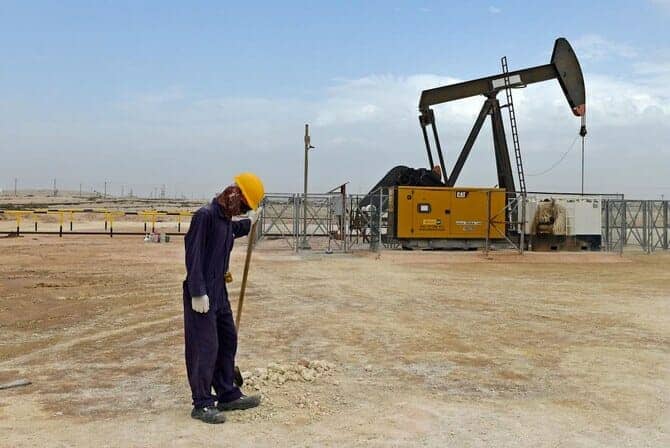London: Oil prices jumped above $80 this week for the first time in almost three years, handing a major boost to producers — but fuelling more inflationary pain for consumers, analysts say.
The price of European benchmark Brent North Sea crude for delivery in November hit $80.75 per barrel on Tuesday, attaining the highest level since October 2018, but edged lower on Wednesday.
The market has surged on expectations for strong demand and concerns about tight supplies as the world slowly emerges from the pandemic crisis.
Global supplies have been disrupted because US production remains hampered by ongoing fallout from Hurricane Ida in the Gulf of Mexico and Louisiana.
The United States is both the world’s largest consumer and producer of crude oil.
Oil demand has also leaped in recent weeks due to soaring natural gas prices around the world, and coal supply disruption in China.
Winners and losers
“Higher oil prices will benefit the net producers of petroleum products by boosting their export and tax revenues,” Capital Economics analyst Simon MacAdam told AFP.
“Net consuming economies will lose out, since higher fuel costs will eat into the real value of disposable incomes and could impinge on production just at a time when businesses are facing a plethora of mounting cost pressures.”
Crude oil greases the wheels of the world economy, boosting the coffers of major producer nations both inside and outside the OPEC exporters’ cartel.
The soaring market also lifts the profits of energy majors like BP, ExxonMobil, Shell and Total.
However, runaway oil prices threaten the global recovery and stoke inflationary pressures because they lift manufacturing costs — which translates into higher consumer prices.
Inflation is already soaring higher on the back of a worldwide supply crunch, record-high natural gas prices and reopening economies.
Markets have wobbled this year over concerns that central banks will withdraw stimulus measures and hike record-low interest rates to tame rising prices.
Inflation threat
“Rising oil prices add yet further upwards pressure on inflation,” noted Josie Dent, an economist at UK-based research group the Centre for Economics and Business Research (CEBR).
“Businesses and households in Europe and the United States (are) set to experience rising costs associated with using oil and energy.”
Many businesses had already been hit hard by lockdown-related closures and ongoing supply-chain disruption.
“This comes at a time that most countries are still early in the recovery phase from the coronavirus pandemic, with many households in a vulnerable financial position due to higher unemployment rates over the past 18-months,” Dent added.
Oil has rebounded strongly since April 2020 when prices collapsed at the outset of the pandemic as economic activity was disrupted by lockdown measures.
The market had also tumbled on evaporating demand, chronic oversupply, scarce storage and a Saudi-Russia price war.
Brent tanked to a record-low $15.98 per barrel around 18 months ago, while New York crude even briefly turned negative at -$40.32.
Prices have since enjoyed a healthy rebound but remain far from record heights of almost $150 struck in 2008.
OPEC now expects global oil demand to exceed its pre-pandemic level in 2022 thanks to Covid vaccines and recovering economies.
The cartel members and their allies, together known as OPEC+, will hold an output meeting next Monday.
OPEC+ cut production last year to boost prices, but are starting to raise output to meet strengthening demand.








